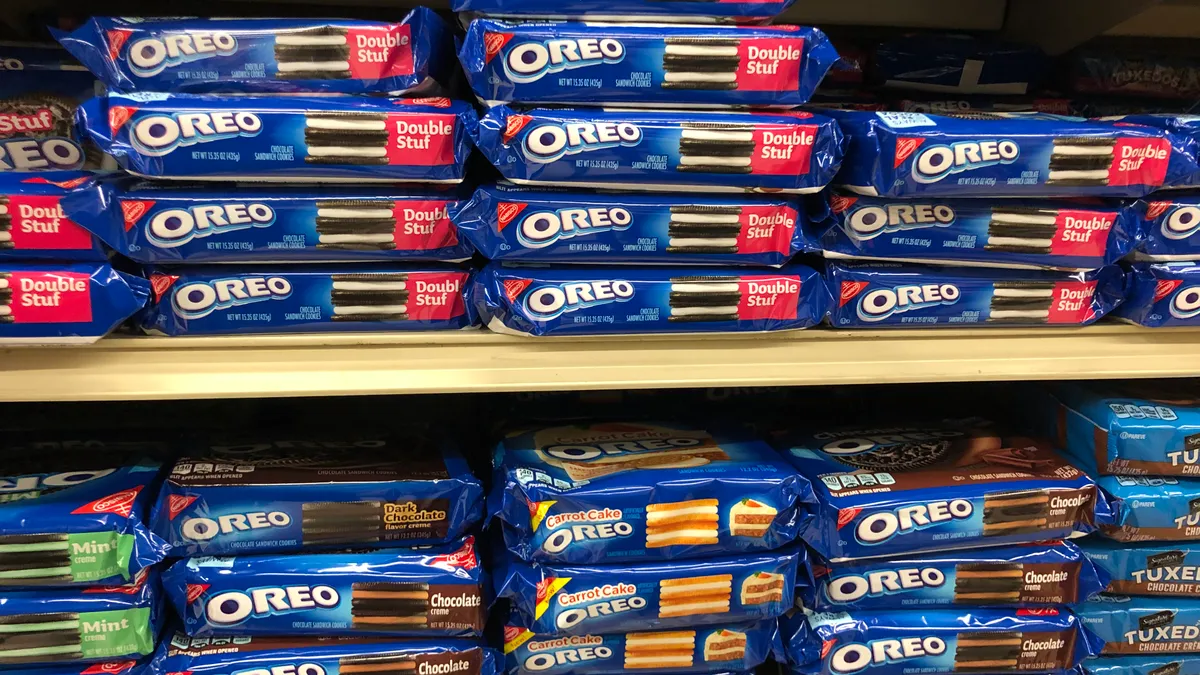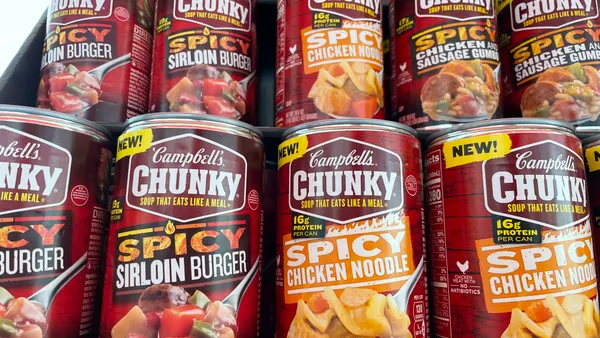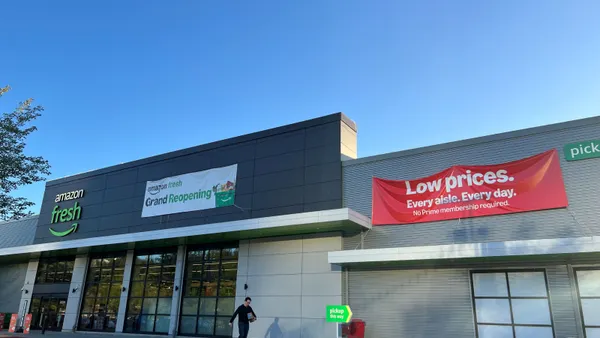Dive Brief:
- Three-quarters of consumers said higher prices they are paying for foods to prepare meals are hurting their pocketbooks more than costlier snacks, Mondelēz International said in a survey developed in partnership with Harris Poll.
- The snacking giant found in its annual State of Snacking report that 89% of global consumers are concerned about inflation and six in 10 are worried about the availability of their favorite snack on store shelves.
- Inflation has impacted nearly every food and beverage product, with CPGs such as Mondelēz passing along price increases to offset higher shipping costs, unpredictability in procuring commodities and other expenses.
Dive Insight:
With nearly 90% of consumers around the globe concerned about inflation, according to Mondelēz, many shoppers have changed what products they purchase, how often and where. While no food category appears to be immune, there is at least some evidence that snacking may be somewhat buffered.
Mondelēz, with a portfolio of brands that includes Oreo, Ritz and Triscuit, has doubled down on snacking with recent deals, such as its roughly $3 billion acquisition last year of Clif Bar. Snacking is a daily staple as 71% of people around the world snack at least twice a day, the company found, with consumers doing it more during breakfast, lunch and dinner last year compared to 2020.
It stands to reason that with shoppers valuing snacking more in place of a meal, they may be more willing to continue to pay more for it despite the higher cost. Mondelēz announced its most recent round of price hikes in the U.S. and other parts of the world in December.
An increase in the price of a cookie, bar, cracker or another snack offering may be easier for a consumer’s pocketbook to digest than a similar percentage being applied to something that costs more to begin with, such as meat, dairy or cereal.
Finally, Mondelēz noted that nearly 80% of consumers surveyed said “these days, it’s more important than ever to have moments of indulgence in the day.” With many consumers facing hardships, the need for a satisfying treat could further benefit snack makers such as Mondelēz, Hershey and Campbell Soup.
“Our State of Snacking report confirms that in these trying times, consumers around the world view their favorite snacks as affordable and necessary indulgences,” Dirk Van de Put, Mondelēz’s CEO, said in a statement. “Snacking continues to be a way for consumers to connect or to enjoy a moment of delight in their day, further demonstrating our belief that every snack can be enjoyed in a mindful way.”
Mondelēz’s State of Snacking report found that supply chain challenges have affected many consumers. More than half (51%) of people around the world have experienced a shortage or delay in receiving snacks in the last year, including 57% in the U.S.
The disruption has forced consumers, especially Gen Z and millennials, to be more open to trying new snacks. The flexibility could be a boon for manufacturers who can keep most, if not all, of their most popular brands on shelves as a way to draw, and hopefully retain, shoppers in the long term.
Consumers also reported having more faith in large brands to carry them through this time, Mondelēz noted, with 76% saying, “bigger brands are better equipped to deliver during challenging times.”
















